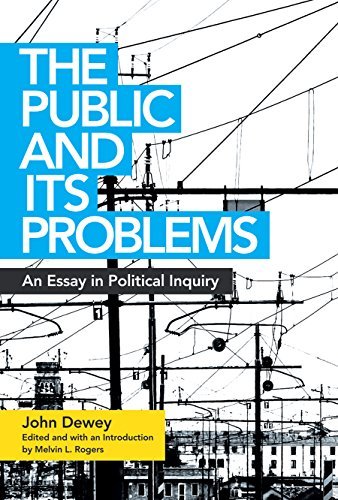What do you think?
Rate this book


304 pages, Kindle Edition
First published January 1, 1927
"A society in which the ever-expanding and intricately ramifying consequences of associated activities shall be known in the full sense of that word, so that an organized, articulate Public comes into being. The highest and most difficult kind of inquiry and a subtle, delicate, vivid and responsive art of communication must take possession of the physical machinery of transmission and circulation and breathe life into it. When the machine age has thus perfected its machinery it will be a means of life and not its despotic master. Democracy will come into its own, for democracy is a name for a life of free an enriching communion. It had its seer in Walt Whitman. It will have its consummation when free social inquiry is indissolubly wedded to the art of full and moving communication."